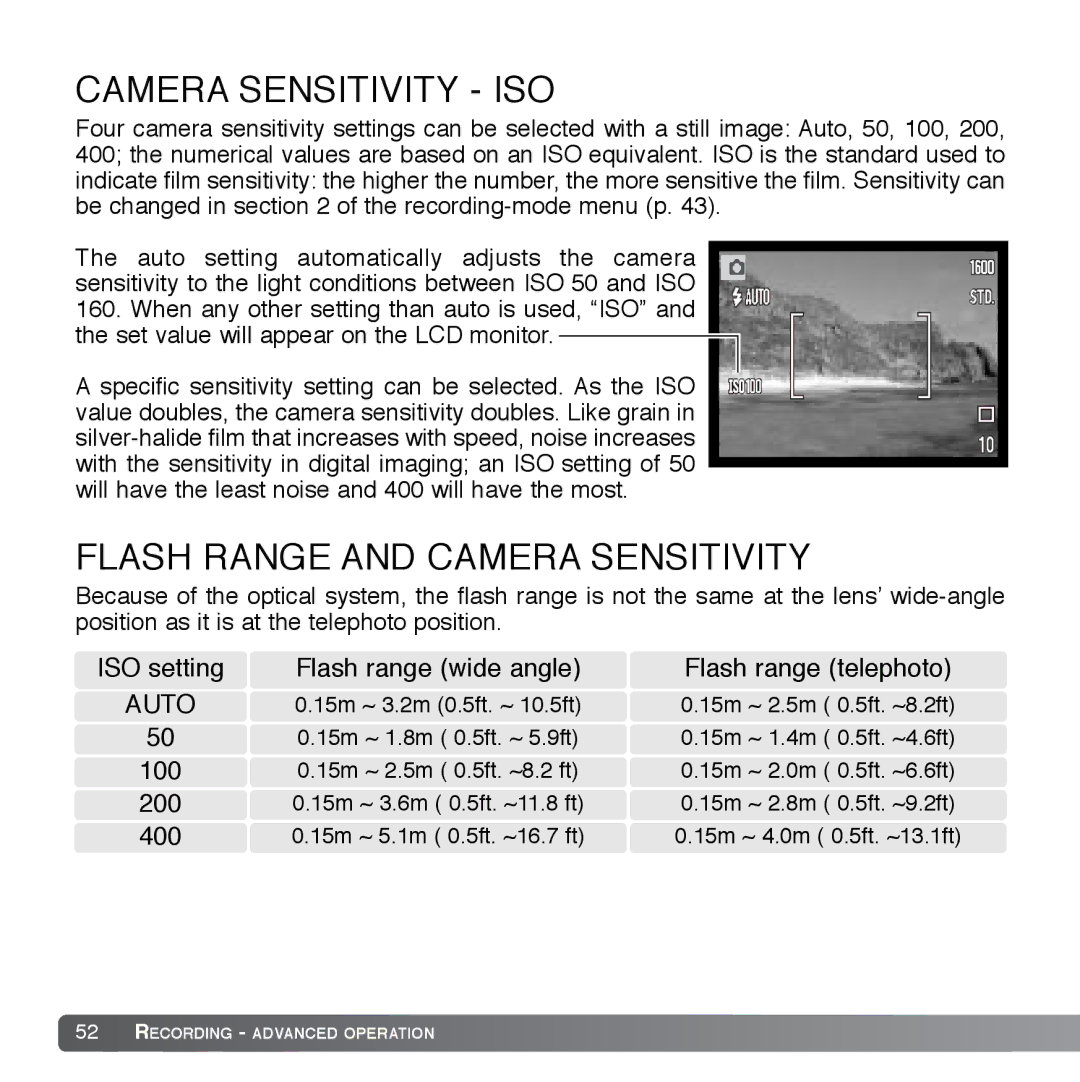
CAMERA SENSITIVITY - ISO
Four camera sensitivity settings can be selected with a still image: Auto, 50, 100, 200, 400; the numerical values are based on an ISO equivalent. ISO is the standard used to indicate film sensitivity: the higher the number, the more sensitive the film. Sensitivity can be changed in section 2 of the
The auto setting automatically adjusts the camera sensitivity to the light conditions between ISO 50 and ISO 160. When any other setting than auto is used, “ISO” and the set value will appear on the LCD monitor. ![]()
A specific sensitivity setting can be selected. As the ISO value doubles, the camera sensitivity doubles. Like grain in
FLASH RANGE AND CAMERA SENSITIVITY
Because of the optical system, the flash range is not the same at the lens’
ISO setting | Flash range (wide angle) | Flash range (telephoto) |
AUTO | 0.15m ~ 3.2m (0.5ft. ~ 10.5ft) | 0.15m ~ 2.5m ( 0.5ft. ~8.2ft) |
50 | 0.15m ~ 1.8m ( 0.5ft. ~ 5.9ft) | 0.15m ~ 1.4m ( 0.5ft. ~4.6ft) |
100 | 0.15m ~ 2.5m ( 0.5ft. ~8.2 ft) | 0.15m ~ 2.0m ( 0.5ft. ~6.6ft) |
200 | 0.15m ~ 3.6m ( 0.5ft. ~11.8 ft) | 0.15m ~ 2.8m ( 0.5ft. ~9.2ft) |
400 | 0.15m ~ 5.1m ( 0.5ft. ~16.7 ft) | 0.15m ~ 4.0m ( 0.5ft. ~13.1ft) |
52RECORDING - ADVANCED OPERATION
